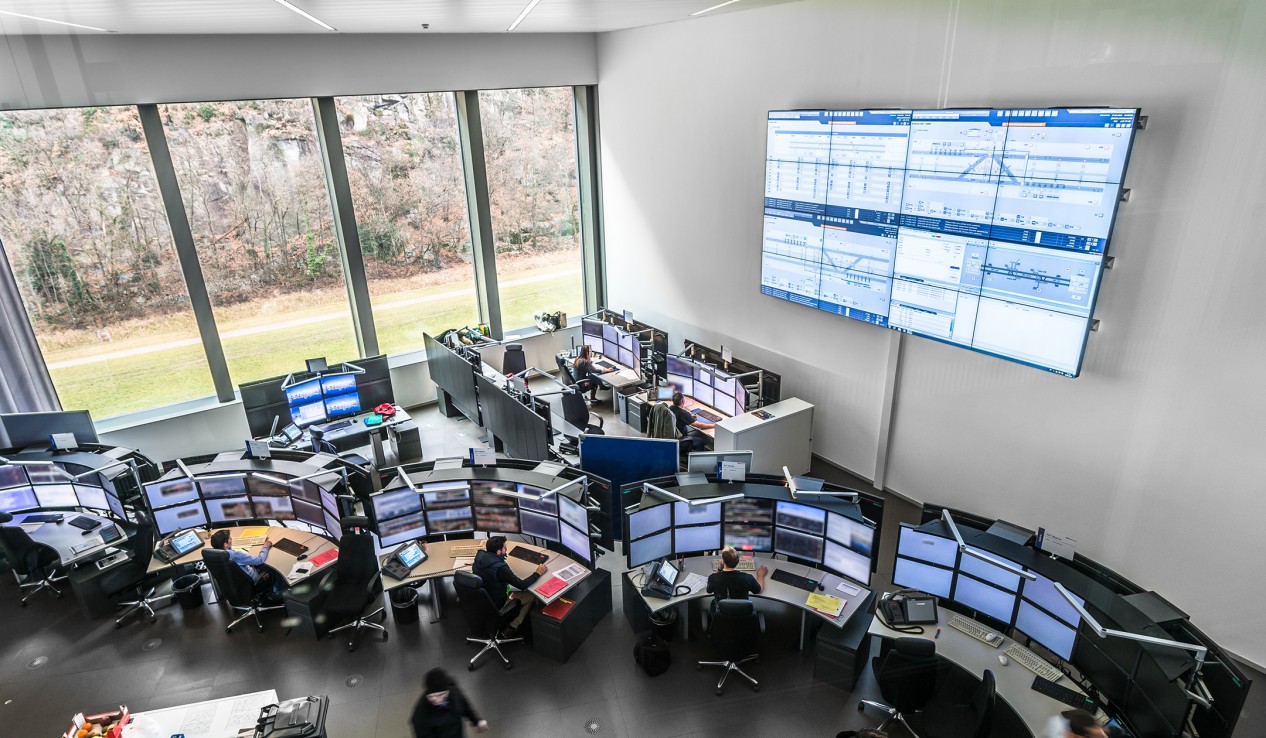Business interruption as a "top risk" in Switzerland
A trio of risks closely related to Covid-19 leads the tenth Allianz Risk Barometer 2021. It highlights the potential losses and disruptive scenarios that companies will face as a result of the pandemic. In Switzerland, business interruption ranks first and cyber incidents second, closely followed by pandemic outbreak.

"The Allianz Risk Barometer 2021 is clearly dominated by the Covid 19 trio. Business interruption (BU), pandemic and cyber are strongly interlinked and demonstrate the growing vulnerability of our highly globalized and interconnected world," said Joachim Müller, CEO of AGCS. "The coronavirus pandemic reminds us that risk management and business continuity management must continue to evolve to better equip organizations to withstand and survive extreme events. While the pandemic continues to keep a tight grip on many countries around the world, we need to prepare for more frequent extreme scenarios - such as a global cloud outage or cyberattack, natural disasters due to climate change, or even another disease outbreak."
The Covid 19 crisis continues to pose an imminent threat to individual safety and businesses - with the consequence that the risk has displaced other threats worldwide and risen 15 positions to No. 2 in the rankings, according to the Allianz media release. Before Corona, the pandemic risk had never been higher than 16th place in the ten years of the Allianz Risk Barometer. This shows that it was a significantly underestimated risk. In 2021, however, it is the top risk in 16 countries and also among the top three risks on all continents and in 35 of the 38 countries analyzed, it says.
Top hazards in Switzerland
In Switzerland, too, business interruption (1st place with 58% of responses), cyber incidents (56%) and pandemic outbreak (48%) dominate the ranking - with Swiss companies rating the risk of a cyber incident (2nd place) even higher than the consequences of the pandemic (3rd place). One place lower than last year in 4th place (24%) are legal changes such as trade wars and tariffs, protectionism and economic sanctions. Also new in the top ten, bucking the global downward trend, is the risk of climate change/increasing weather volatility, which ranks 7th (12%).
Pandemic drives operational disruption - now and in the future
BU risks have been at the top of the Risk Barometer seven times before, and they are now returning to No. 1, having been replaced by cyber incidents in 2020. The pandemic shows that extreme BU events of global proportions are not just theoretical, but a real threat that can lead to massive revenue losses and disruptions to production, operations and supply chains, he said. 59% of respondents cited pandemic as the main cause of BU in 2021, followed by cyber incidents (46%) and natural disasters, fire and explosions (around 30% each).
BCM as the most important measure
According to Allianz, the pandemic thus joins the growing list of BU scenarios without preceding property damage, such as cyber or power outages. "The consequences of the pandemic - broader digitalization, more work from home and the growing dependence on technology in companies and society - are likely to increase business interruption risks in Switzerland in the future," explains Christoph Müller, Country Manager AGCS in Switzerland. In response to increased BU vulnerability, many companies are looking to make their operations more resilient and their supply chains more robust, he said. According to Allianz Risk Barometer respondents, improving business continuity management is the top action companies want to take (62%), followed by developing alternative or multiple suppliers (45%), investing in digital supply chains (32%) and improving supplier selection and vetting (31%).
Cyber dangers intensify
Cyber incidents, he said, had dropped to No. 3 in the global ranking, but remained a top threat with more percentage responses than in 2020 and still ranked as a top 3 risk in many countries, including Switzerland (No. 2). The pandemic-driven acceleration toward more digitization and home offices also further exacerbates IT vulnerabilities, he said. Covid-19-related malware and ransomware incidents increased by more than a third in 2020, according to Interpol, and phishing and fraud incidents increased by as much as half. Ransomware attacks, already common, would continue to increase. They are increasingly targeting large enterprises with high extortion demands, as the latest AGCS report on cyber risk trends shows.
"Covid-19 has shown how quickly cybercriminals can adapt. The digitalization push from the pandemic has created new opportunities for attacks. New cyber damage scenarios are constantly evolving," says Catharina Richter, global head of the Allianz Cyber Center of Competence at AGCS.
The annual survey by Allianz Global Corporate & Specialty (AGCS) incorporated the views of 2769 experts from 92 countries, including CEOs, risk managers, brokers and insurance professionals.
For more information on the Allianz Risk Barometer 2021 here.









